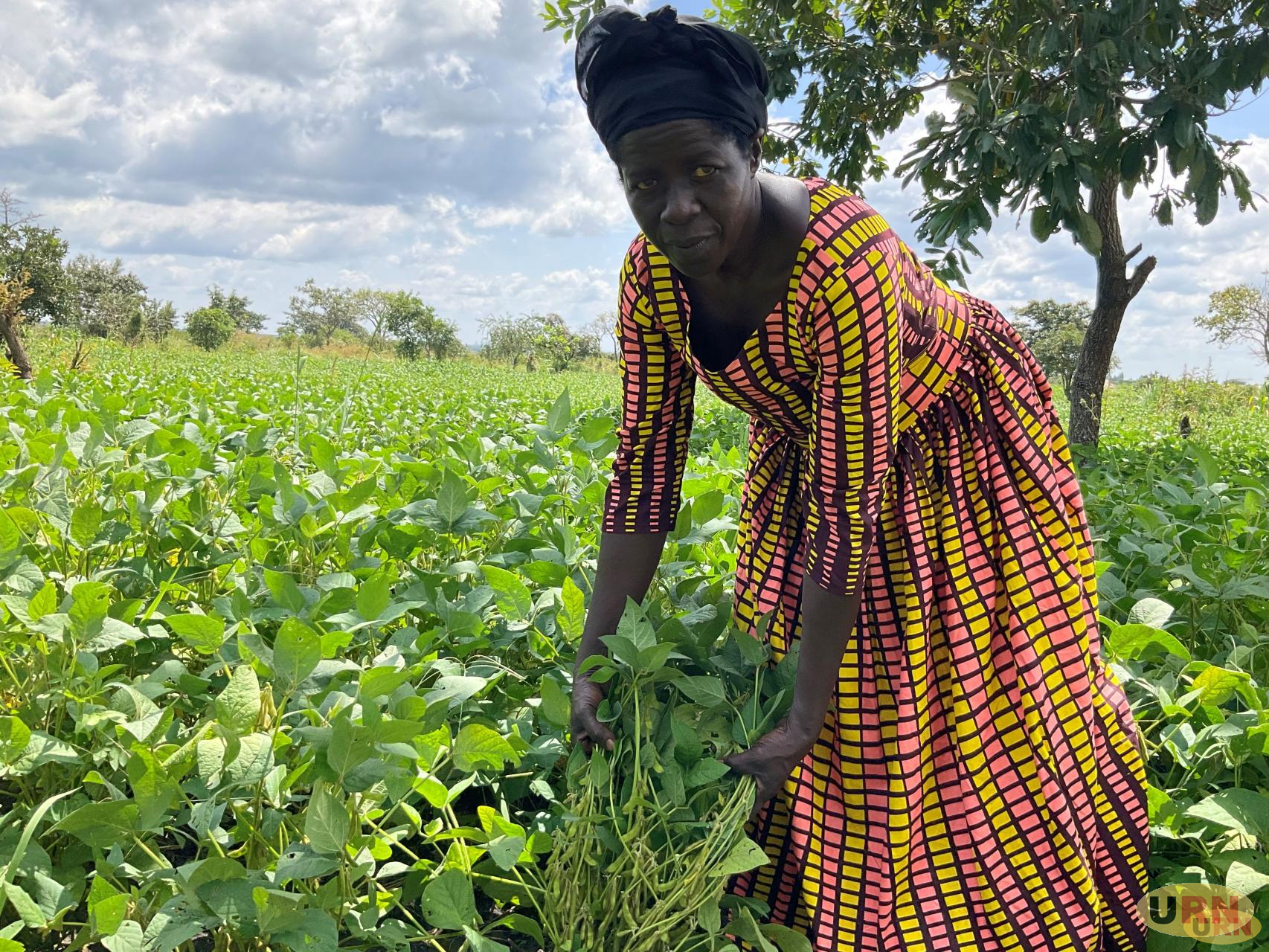Farmers across the Acholi sub-region are adopting improved seed varieties to counter the detrimental impacts of adverse weather conditions on their crop yields. During the previous seasons, a significant number of farmers acquired and cultivated enhanced seed varieties, including maize, soybeans, sesame (sim-sim), groundnuts, and beans. Improved seeds refer to those produced through a specialized seed production process tailored for specific regions.
They possess specific cultivation practices, excel in local cultivars in various aspects, and offer the potential for substantial crop output due to their genetic capabilities. Nighty Akot, a resident of Ceke Village in Langele Parish, Koch Lii Sub County, Nwoya district, has witnessed favorable yields from her Vitam Maize improved variety. Despite her 15 years of experience in farming local maize varieties, erratic weather patterns prompted an agricultural extension worker to advise her to switch to improved seeds for better outcomes during the last planting season.
“I attest that the seeds are far better than the local seeds in terms of yielding. I got 30 sacks of maize from just 3 acres of my garden, after planting vitam 50 maize seeds,” she says. Bosco Ojok Aribowat, a farmer from Licwa West village, Padibe East Sub County, Lamwo district, shares that he transitioned to improved seeds for comparative reasons. “In my 13 years of farming, I have used improved seeds for 10 years and I have never turned back, because they are pest and disease-resistant, high yielding, and are drought tolerant,” Aribowat says.
Ayet Susan, another farmer from Licwa West village, Padibe East Sub County, Lamwo district, reveals that on one acre of land dedicated to local sesame (sim-sim) seeds, she obtained four sacks in yield, whereas the same area yielded 7 sacks when using improved seeds. Janet Aciro, a farmer from Amuwolo Dino village, Odek Sub County, Omoro district, employs both seed varieties each season. “I plant improved seeds for commercial purposes because they are high yielding which culminates into higher sales, while local seeds help me on food security at home,” Aciro states.
These farmers adopted improved seed varieties based on the advice of agricultural extension workers in their areas, prompted by extended dry periods and unprecedented heavy rainfall. Maximillian Ogwal, an agronomist affiliated with Capable Uganda, an organization supporting farmers in Northern Uganda, emphasizes that to maximize the benefits of improved seeds, farmers must adhere to good agronomic practices (GAP).
“GAP includes row planting, early planting, timely weeding, and crop rotation,” he explains. Despite the widespread adoption of improved seeds among most farmers in the region, challenges persist, such as limited access to reputable agro-input suppliers and high purchase costs.
Ogwal suggests that, in a region heavily reliant on rainfall for cultivation, farmers must integrate modern farming technology to address these challenges. Farmers in Northern Uganda continue to grapple with prolonged drought due to the volatile climate conditions.
Emmanuel Daniel Ojara & Jackie Adure




